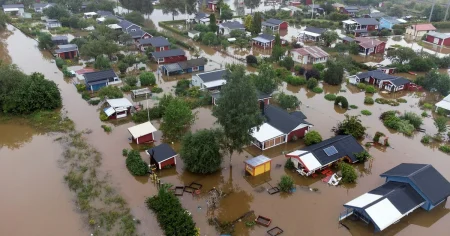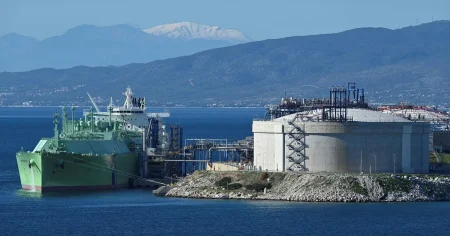The cost of water and waste management services in Sweden is experiencing a dramatic surge, with certain municipalities facing increases exceeding 50 percent, marking the highest national average ever recorded. This unprecedented escalation is poised to trigger a ripple effect across the Swedish economy, potentially leading to higher rents for tenants and increased expenses for homeowners. Experts warn that this is merely the initial phase of a necessary price correction, predicting even more substantial increases in the near future to address aging infrastructure, climate change adaptation, and escalating operational costs. This situation raises concerns about affordability and accessibility of essential services for both households and businesses.
The factors driving these sharp price hikes are multifaceted. A primary contributor is the dilapidated state of Sweden’s water and wastewater infrastructure, much of which dates back to the mid-20th century and is nearing the end of its lifespan. Decades of underinvestment have resulted in a substantial backlog of maintenance and replacement needs, creating a financial burden that is now being passed on to consumers. Compounding this issue is the increasing frequency and intensity of extreme weather events linked to climate change. These events necessitate costly upgrades and expansions to the existing systems to ensure resilience and prevent disruptions in service. For example, heavier rainfall necessitates larger pipes and stronger pumping stations to manage increased runoff, while prolonged droughts require investments in water storage and conservation measures.
Further exacerbating the situation are rising operational costs. Inflationary pressures have driven up the price of materials, energy, and chemicals used in water treatment and waste management processes. The ongoing energy crisis in Europe has added another layer of complexity, significantly impacting the cost of operating energy-intensive treatment plants. Additionally, increasingly stringent environmental regulations necessitate advanced treatment technologies and processes, contributing to higher capital and operational expenditures. These factors, coupled with the growing demand for water and waste services due to population growth and urbanization, create a significant financial strain on municipalities.
The consequences of these escalating costs are far-reaching. For renters, the increased burden on property owners could translate into higher rents, potentially exacerbating existing affordability challenges in the housing market. Homeowners, on the other hand, will face directly increased water and waste management bills, adding pressure to household budgets already stretched thin by rising inflation. Businesses, particularly those reliant on water-intensive processes, will also experience increased operating costs, which could impact competitiveness and potentially lead to job losses. Moreover, the disparity in price increases across different municipalities could exacerbate regional inequalities, with those facing the highest increases bearing a disproportionate burden.
Experts predict that the current price hikes are just the beginning. Kenneth M Persson, a prominent water researcher, emphasizes the need for a substantial price correction, suggesting that current prices need to double to adequately address the long-term challenges facing the sector. This underscores the magnitude of the investment required to modernize and adapt Sweden’s water and waste management systems to the realities of climate change and growing demand. Failure to address these challenges could have severe consequences, including water shortages, environmental degradation, and public health risks.
Moving forward, a comprehensive and long-term approach is necessary to address this complex issue. Increased public investment in infrastructure renewal and expansion is crucial, along with the adoption of innovative and sustainable technologies to improve efficiency and reduce operational costs. Furthermore, promoting water conservation and responsible waste management practices among households and businesses is essential to mitigate demand and minimize environmental impact. Transparent communication and public engagement are also vital to ensure public understanding and support for the necessary price adjustments. Ultimately, a collaborative effort between government, municipalities, businesses, and citizens is required to secure a sustainable and affordable future for water and waste management in Sweden.














